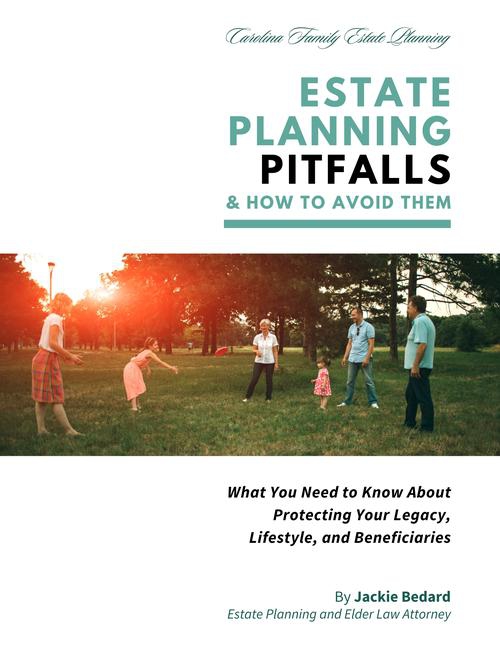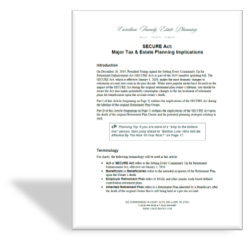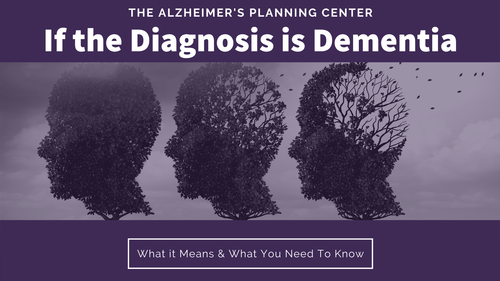
In an era where technology offers solutions at our fingertips, it's tempting to turn to AI tools like ChatGPT, Gemini, or Microsoft Copilot for tasks traditionally handled by professionals. While these tools can provide general information, relying solely on them for something as critical as your estate plan can lead to unintended consequences.
Generative AI tools promise quick answers, cost savings, and convenience. Similarly, DIY estate planning platforms (whether it’s a downloadable template, an online legal form builder, or a mobile app subscription) are marketed as simple alternatives to traditional legal services. But estate planning isn’t just about filling in the blanks; it’s about understanding the nuances of your life, relationships, and the whole financial picture. And that’s where these tools fall short.
Potential Pitfalls of AI-Generated Estate Plans
1. Lack of Personalization
AI chatbots generate responses based on patterns in data, not your real life. They can’t grasp complex family dynamics, blended families, business interests, or wishes you haven’t clearly spelled out. If you’re caring for an aging parent, have children from a previous relationship, or want to leave money to a cause close to your heart, a boilerplate document from AI could easily get it wrong, or leave it out entirely.
2. State-Specific Legal Requirements
Estate law is not one-size-fits-all. North Carolina has its own rules on what makes a will valid, how trusts are taxed, and how assets pass outside probate. AI platforms aren’t designed to apply state-specific laws accurately unless explicitly instructed, and even then, they might miss key legal nuances. A will that looks correct may end up being unenforceable in your state, leaving your loved ones with a legal mess.
3. Overlooking Special Circumstances
Generative AI and other DIY tools may miss less-common but critical scenarios like planning for a child with special needs, protecting assets from Medicaid spend-down, or minimizing estate taxes with strategic gifting. These are not “fill-in-the-blank” issues; they require analysis, foresight, and personalized strategy.
4. Security and Privacy Concerns
Using AI for estate planning means inputting deeply personal and financial information into a third-party platform. Unlike your attorney’s office, platforms like ChatGPT and Gemini don’t guarantee attorney-client privilege or the same level of data security. Sensitive information could be stored or used to train models, putting your privacy at risk.
5. No Legal Oversight or Execution Guidance
An AI tool won’t walk you through how to sign your documents, witness them properly, or store them securely. It won’t check for consistency across your will, powers of attorney, and beneficiary designations. These execution missteps are common, and they can completely derail even a well-written estate plan.
6. Outdated or Incomplete Legal Knowledge
Most AI models are trained on publicly available data up to a certain cutoff date, often a year or more in the past. This means they may not reflect the most current legal updates, recent court rulings, or changes in tax law that could impact your estate. Estate planning laws evolve regularly, especially in areas like Medicaid, inheritance tax, and digital asset management. Relying on AI for legal guidance risks missing important updates that a qualified attorney would know to apply.
Whether you’re using a chatbot, an online template service, or a downloadable legal form, the issues remain the same: lack of personalization, potential noncompliance with state law, and the absence of legal oversight. These tools often treat estate planning like a checklist, but your life and your legacy are anything but standard.
Your Legacy Deserves More
While AI tools may seem like cost-effective shortcuts, they lack the depth, personalization, and legal reliability that estate planning requires. Your legacy is too important to risk on a generic template.
Engaging with an experienced estate planning attorney ensures your documents comply with North Carolina law, reflect your specific goals, and protect your loved ones in the ways you intend. An attorney will spot red flags, help you make informed decisions, and adapt your plan as life changes.
Ready to build an estate plan that’s done right the first time? Call us today at (919) 443-3035 or click here to schedule your case assessment and get the personalized guidance you and your family deserve.







